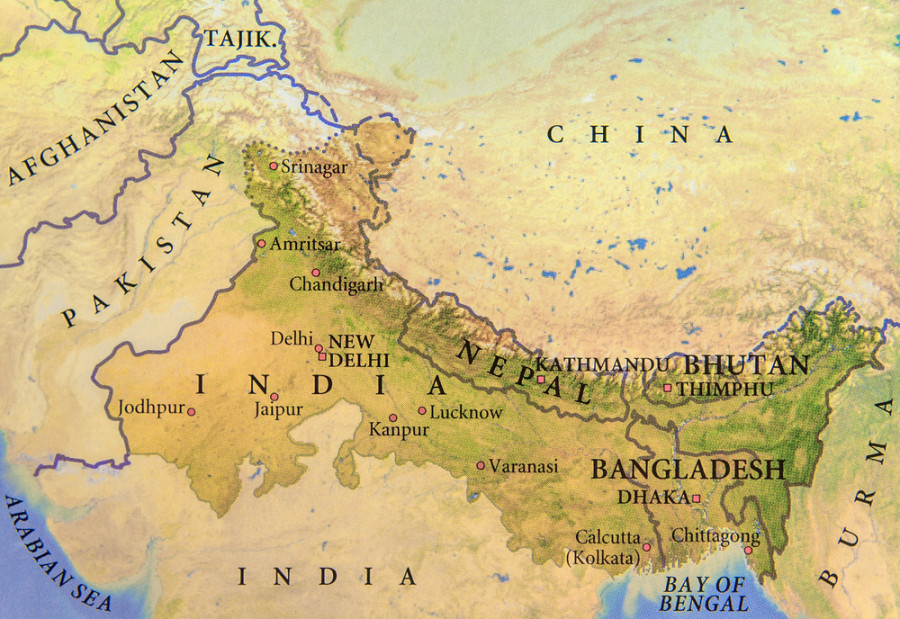Money
Four years since signing, a crucial transit agreement sees no progress
Nepal, Bangladesh and India have not been able to move forward on a cross-border motor vehicles agreement after Bhutan pulled out two years ago.
Rajesh Khanal
Even four years after Bangladesh, Bhutan, India and Nepal signed a motor vehicles agreement to facilitate the seamless movement of cargo and passengers cross borders, there has hardly been any progress to sign the protocol, which experts and analysts say is causing losses to Nepal.
Bangladesh-Bhutan-India-Nepal (BBIN) was a concept floated by India as a sub-regional connectivity project after Pakistan’s reservations over a similar motor vehicles agreement under the South Asian Association for Regional Cooperation (SAARC). The motor vehicle agreement was one of the items on the agenda of the 18th SAARC Summit, held in Kathmandu in November 2014.
But in 2017, Bhutan pulled out of the agreement, citing environmental concerns, in a major stumbling block to the sub-regional connectivity and a huge setback to India. Thimphu said the remaining three countries, however, could move ahead without it. Bhutan, the smallest country in the four-nation grouping, was concerned it would face environmental damage if cargos were allowed from other partner countries.
According to analysts, since Bhutan, a strategic partner, pulled out of the agreement, Bangladesh, India and Nepal have not been able to move forward.
The three countries are now scheduled to meet in Bangkok in September, where officials hope to finalise the protocol and move ahead with the agreement. But with India mired in its own affairs, most recently in Kashmir, it is unclear whether the meeting will take place or if it is on a list of priorities for India at the moment.
Rabi Shankar Sainju, former joint-secretary at the Ministry of Industry, Commerce and Supplies, said that the protocol will incorporate standard operating procedures, vehicle weights, axle loads and dimensions, road designs and construction standards, prescribed routes, rates of tax and fees, transit fees and charges as per international conventions, and dispute settlement clauses.
The protocol, however, should also include the use of railways and inland waterways so that landlocked countries like Nepal can benefit more from the agreement, said analysts and former officials.
“Nepal will not benefit until the protocol incorporates inland waterways and railways, apart from trucks and passenger vehicles,” Naindra Prasad Upadhyaya, former commerce secretary, said at an event organised jointly by the Asian Development Bank and South Asia Watch on Trade, Economics and Environment on Sunday.
With SAARC increasingly sidelined, the BBIN could offer an alternative platform for regional trade, according to Gyan Chandra Acharya, former under secretary-general of the United Nations.
“It could help reduce logistics costs on trade, which are significantly higher in the South Asian region,” said Acharya.
There, however, are concerns, especially from the private sector, given how existing trade and transit treaties and agreements with India have been less than satisfactory.
Although Nepal and India have consented bilaterally to seamless vehicular movement, actual practice is less than smooth. Currently, Indian passenger and personal vehicles are given permits at border customs points while Nepali vehicles have to receive permission from the Embassy of India in Kathmandu to travel on Indian lands.
“As of now, vehicular movement has not been as seamless as envisioned,” said Sainju.
According to Ashok Temani, chairperson of the Road Transport and Transit Committee of the Federation of Nepalese Chambers of Commerce and Industry, Nepal has failed to benefit from a number of agreements signed with India.
“Although Nepal and India have a trade and transit treaty, railway service agreement and a cargo agreement in place, they have failed to benefit Nepal,” he said.
Poor infrastructure, poverty along the border areas, and a failure to implement necessary laws are among the primary obstacles to ensuring the free movement of vehicles and passengers cross the Nepal-India border, said Temani.
Others are more concerned with whether such an agreement will undermine Nepal’s sovereignty.
“As Nepal and India share multiple entry and exit points along the border, the country will have a tough time enforcing cabotage restrictions,” said trade analyst Purushottam Ojha. Cabotage rights allow a company from one country to trade in another country.
Ojha also underscored the need to address transit and transport fees, visa facilitations, currency exchanges, and access to inland container depots to the member countries. “Until these issues are resolved, things will not move in the right direction, despite the agreement,” said Ojha.




 10.12°C Kathmandu
10.12°C Kathmandu













